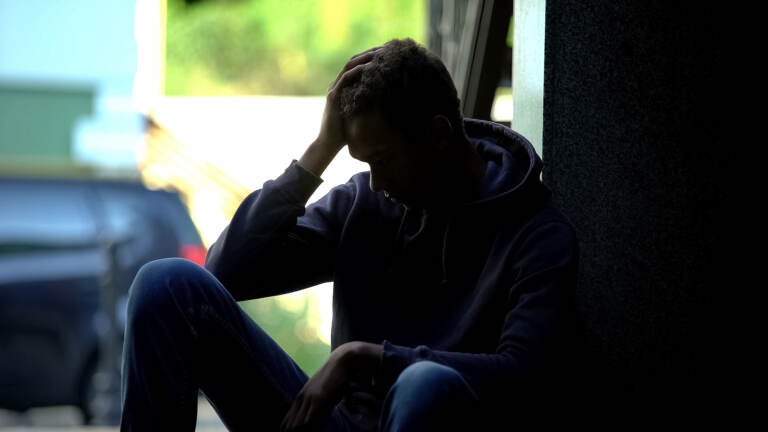Students cite mental health struggles as they opt out of college, especially students from LGBTQ+ and marginalized communities
A new survey shows one-third of students cite mental health concerns for dropping out of college, or never going.
Listen 1:19
(motortion/BigStock)
From Philly and the Pa. suburbs to South Jersey and Delaware, what would you like WHYY News to cover? Let us know!
High school juniors and seniors frequently find themselves pondering tough decisions about the road ahead. Will they go to college? If not, what comes next?
That journey can significantly impact students’ mental well-being, leading many to choose to delay enrollment or opt out of college entirely.
A recent study by EAB, an educational company once known as the Education Advisory Board, revealed a concerning statistic: nearly one-third of the nearly 6,500 students studied opted out of college due to mental health concerns, with mental well-being concerns being most pronounced among underrepresented groups. Specifically, the issue is particularly notable among 54% of trans students, 53% of nonbinary students, 33% of Black students, 30% of Native American students, and 30% of female students.
Eric Layland, a researcher and assistant professor in the department of human development and family sciences at the University of Delaware, concurs with the research findings, noting deeper stressors within the LGBTQ+ student community.
He said LGBTQ+ students “also face additional stressors based on their LGBTQ minority identities that come from the systemic and day-to-day mistreatment and devaluation of LGBTQ students. … For trans and non-binary students in particular, that’s living in a political climate that is often devaluing their identities and threatening to block their basic human rights.”
While most students who apply for college worry about independent living and forming new connections, some also grapple with the added challenges of being transgender, gay, or Black.
“You layer on top of that additional stressors of having to navigate whether they’ll be accepted for their identities, how they will access and reach firming and positive mental and physical health care and looking for workplace and living environments that will validate and be fair to their identities,” he added.
During the survey, students indicated that stress and anxiety overshadow their college search and planning. Layland even mentioned that suicide attempts are rates of anxiety and depression are higher among LGBTQ adolescenets.
Suicide ranks as the third leading cause of death in Delaware for individuals aged 10-24.
According to America’s Health Ranking, Delaware high school students who identify as queer are more likely to consider attempting suicide compared to their heterosexual counterparts.
‘Cultural competence and cultural humility’
Universities need to proactively consider how they will care for trans or non-binary students, Layland said.
“Cultural competence for providing care to trans and non-binary students is extremely important at universities and that takes continued training and reflection with staff particularly advising in Mental Health Care staff,” Layland said. “So cultural competence, or another idea we might talk about, cultural humility, is really important for working with groups who may have experiences that providers and admin and staff don’t have themselves.”
He says cultural humility centers on an individual’s willingness to learn and engage with people from marginalized groups or communities they may not be part of. This encompasses the adeptness to interact sensitively with individuals, including queer students or those from diverse racial backgrounds.
Another expert from the University of Delaware, Roderick L. Carey, a professor in the Department of Human Development and Family Sciences, emphasizes the crucial role of cultural competence for marginalized groups, particularly in matters of race.
“Race is a very important, life-shaping variable, not necessarily just the color of your skin, but just the ways that the color of your skin offers you opportunities, but also challenges
in maneuvering up and through the K-12 system to even get to college,” Carey said. “We see even preschool age boys Black boys getting suspended and expelled from school.”
Following a suspension, students may be labeled a “problem.” Carey said that experience based on the color of one’s skin can become a traumatic experience for the student, significantly impacting their cognitive development from kindergarten through high school.
“It’s like those types of things, when kids experience those types of traumas in their school, they grow to start to wonder whether or not school in other formations of school like higher education is for them,” he said.
To better support underrepresented groups, experts suggest that universities gather sexual orientation and gender identity data during admissions to get a better sense of enrollment patterns. They say schools should also allocate more resources to help educators enhance their cultural competency.
WHYY is your source for fact-based, in-depth journalism and information. As a nonprofit organization, we rely on financial support from readers like you. Please give today.






